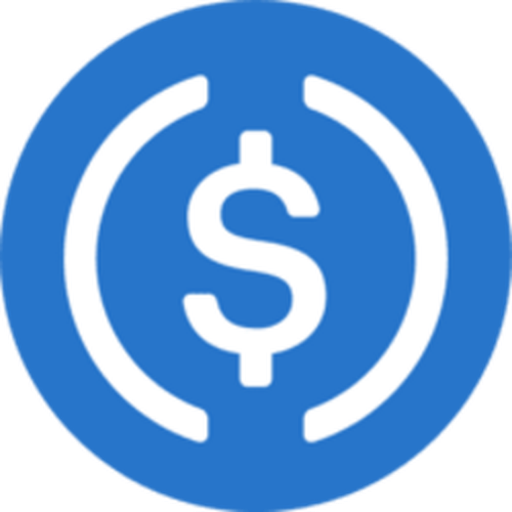USDC vs Wrapped Ether (Mantle Bridge) – Price, Market Cap & Performance Compared
Which coin performs better – USDC or Wrapped Ether (Mantle Bridge)?
We compare the current price (0.99971 $ vs 4 165.52 $), market cap (74 153 765 385 vs 339 091 370) and all-time high (1.17 vs 4 962.42).
Find out which one stands out right now!
USDC is currently trading at 0.99971 $, while Wrapped Ether (Mantle Bridge) stands at 4 165.52 $. These cryptocurrencies differ not only in price but also in market presence.
The market cap of USDC is around 74 153 765 385, and Wrapped Ether (Mantle Bridge) has about 339 091 370. Their respective all-time highs are 1.17 for USDC and 4 962.42 for Wrapped Ether (Mantle Bridge).
Daily trading volume and the 24h price change (-0.00009 % vs 0.36102 %) also offer key insights.
Compare all metrics now and see which coin fits your investment strategy best!
USDC
USD Coin (USDC) is a stablecoin that is pegged to the US dollar, offering a consistent value and reducing the volatility often associated with cryptocurrencies. It provides a crucial bridge between traditional financial systems and digital currency markets, facilitating easy and secure transactions. USDC's foundation on blockchain technology ensures transparency and enhances trust among users and institutions.
more informationWrapped Ether (Mantle Bridge)
Wrapped Ether (Mantle Bridge) plays a crucial role in enhancing the interoperability of Ethereum-based assets by allowing users to seamlessly transfer Ether across different blockchain networks. This innovative solution not only simplifies transactions but also helps in leveraging the benefits of various decentralized applications. As the importance of cross-chain functionality grows, Wrapped Ether is poised to become an essential component in the evolving landscape of decentralized finance.
more information

|

|
|
|
|
General Information |
|
|---|---|
|
Title
USDC
|
Title
Wrapped Ether (Mantle Bridge)
|
|
Symbol
usdc
|
Symbol
weth
|
|
Whitepaper
-
|
Whitepaper
|
|
Website
|
Website
|
|
Community
-
|
Community
-
|
|
Last Updated
2025-09-24 23:29
|
Last Updated
2025-09-24 23:29
|
Price Data |
|
|---|---|
|
Current Price $
0.99971 $
|
Current Price $
4 165.52 $
|
|
High 24h
0.99972 $
|
High 24h
4 221.16 $
|
|
Low 24h
0.99960 $
|
Low 24h
4 092.74 $
|
|
Price Change 24h
0.00000 $
|
Price Change 24h
14.98 $
|
|
Price Change % 24h
-0.00009 %
|
Price Change % 24h
0.36102 %
|
Market Data |
|
|---|---|
|
Market Cap
74 153 765 385
|
Market Cap
339 091 370
|
|
Total Volume
10 559 655 699
|
Total Volume
2 269 310
|
|
Market Cap Change 24h
159 815 467
|
Market Cap Change 24h
927 924
|
|
Market Cap Change % 24h
0.21598 %
|
Market Cap Change % 24h
0.2744 %
|
|
Return on Investment (ROI)
-
|
Return on Investment (ROI)
-
|
Supply and Availability |
|
|---|---|
|
Circulating Supply
74 175 659 818
|
Circulating Supply
81 214
|
|
Total Supply
74 172 355 958
|
Total Supply
81 214
|
|
Max Supply
-
|
Max Supply
-
|
Historical Data |
|
|---|---|
|
All Time High (ATH)
1.17
|
All Time High (ATH)
4 962.42
|
|
ATH Change %
-14.75232 %
|
ATH Change %
-15.86237 %
|
|
ATH Date
2019-05-08 00:40
|
ATH Date
2025-08-24 19:24
|
|
All Time Low (ATL)
0.87765
|
All Time Low (ATL)
1 402.44
|
|
ATL Change %
13.90744 %
|
ATL Change %
197.71513 %
|
|
ATL Date
2023-03-11 08:02
|
ATL Date
2025-04-09 01:32
|
USDC
Understanding USDC: A Stablecoin in the Volatile Crypto World
USDC, or USD Coin, is a prominent stablecoin in the cryptocurrency market. Issued by Circle and backed by fully reserved assets, USDC is designed to maintain a 1:1 value ratio with the US Dollar, making it a reliable digital dollar. The stablecoin ecosystem plays a crucial role in the broader cryptocurrency industry by providing a less volatile alternative to traditional cryptocurrencies like Bitcoin and Ethereum.
The Evolution of USDC
Launched in 2018, USDC was developed as part of a collaboration between Circle and Coinbase, two major forces in the cryptocurrency space. Since its inception, USDC has seen significant growth and adoption, becoming one of the leading stablecoins alongside Tether (USDT) and Binance USD (BUSD). While its all-time high reached $1.17 in May 2019, this was more of an anomalous spike that reinforced the need for rigorous controls to maintain stability around its intended $1 peg.
Pros of Using USDC
One of the primary advantages of USDC is its transparency and regulatory compliance. Circle, the company behind USDC, undergoes regular audits and publishes monthly attestations of its reserves, ensuring users that each USDC token is truly backed by a dollar or dollar-equivalent asset held in reserve. This transparency fosters trust and helps mitigate the volatility that plagues much of the crypto market.
Furthermore, USDC serves as a bridge between traditional finance and the blockchain world. It's used widely in Defi applications, allowing decentralized lending, borrowing, and trading while maintaining value stability. Additionally, USDC's integration into various wallets and exchanges worldwide adds to its utility and liquidity.
Cons of USDC
Despite its advantages, USDC is not without its drawbacks. One of the critical concerns involves regulatory risks, as stricter regulations on stablecoins could impact its future operations. Also, as a centralized stablecoin, USDC is subject to censorship concerns, where accounts can be frozen, diverging from the decentralized ethos that underlies most cryptocurrencies.
Another drawback is that, unlike decentralized alternatives, USDC requires a level of trust in the issuer, Circle. Any potential mismanagement or economic instability affecting Circle could, in theory, impact its ability to maintain the 1:1 peg, a risk inherent to any centralized stablecoin.
Past Performance and Market Impact
USDC has generally maintained its peg effectively, with minor fluctuations typically remaining within a tight range around $1. Its stability has been pivotal during periods of crypto market volatility, where it serves as a safe haven for investors looking to escape market downturns without exiting the crypto ecosystem.
In terms of market cap, USDC has experienced exponential growth, driven by increased adoption in the decentralized finance (Defi) space and demand for stable trading pairs. Despite being eclipsed by Tether (USDT) in terms of market share, USDC's reputation for transparency gives it a competitive edge.
Future Outlook for USDC
Looking ahead, USDC's future appears promising but laden with challenges. The growing scrutiny from regulators worldwide could result in regulatory changes impacting its operations. However, Circle's proactive approach to compliance and regulation may shield USDC from adverse outcomes.
The stablecoin's role in facilitating seamless transactions and enabling innovative financial products in the Defi space will likely continue to drive its utility and adoption. Moreover, as traditional financial institutions begin to explore blockchain technology, USDC could play a critical role in bridging the two worlds.
In summary, USDC's stability, transparency, and integration with both traditional and decentralized finance systems position it as a key player in the ongoing evolution of digital finance. However, navigating regulatory landscapes and maintaining trust will be crucial for its sustained success.
Wrapped Ether (Mantle Bridge)
An Introduction to Wrapped Ether (Mantle Bridge)
Wrapped Ether (WETH), an integral part of the Mantle Bridge ecosystem, represents a significant development within the broader cryptocurrency space. As a wrapped version of Ether (ETH), WETH allows users to engage with decentralized finance (DeFi) applications while leveraging the advantages of Ethereum's robust infrastructure.
Understanding WETH and Its Mechanism
WETH is essentially a tokenized version of ETH that adheres to the ERC-20 token standard. This wrapping process opens up a realm of possibilities for users, as it increases the functionality of Ether within decentralized applications (dApps), allowing it to be easily traded and interacted with in various DeFi protocols. With WETH, users can enjoy seamless trades on decentralized exchanges (DEXs), participate in yield farming, and much more, enhancing the utility of their assets.
Past Performance: A Journey Through Time
Since its inception, Wrapped Ether has experienced volatility, influenced by the overall performance of the Ethereum network and the broader crypto market. WETH reached its all-time high (ATH) of $4,597.42 on March 27, 2024. However, it has also faced significant downturns, with its all-time low (ATL) recorded at $1,521.64 on October 12, 2023, showing a remarkable recovery of approximately 73.33% since then. Currently, WETH is priced at around $2,640.64, indicating a minor price change of 2.8% in the last 24 hours.
Advantages of Wrapped Ether
The benefits of using Wrapped Ether are manifold:
- Interoperability: WETH enhances the compatibility of Ether with various DeFi platforms, making it easier for users to leverage their assets across different ecosystems.
- Liquidity Provision: By wrapping ETH into WETH, users can provide liquidity to DEXs, thus earning transaction fees and rewards.
- Smart Contract Integration: WETH's ERC-20 compatibility allows for easier integration into smart contracts, facilitating diverse use cases and applications.
Challenges and Disadvantages
While WETH presents numerous advantages, it is not without its challenges:
- Centralization Risks: The wrapping process involves a degree of centralization, as users must rely on specific platforms to mint or unwrap WETH, potentially exposing them to risks inherent in those platforms.
- Transaction Fees: Interacting with wrapped assets often incurs additional transaction fees, which can diminish the overall profitability for users, especially during times of network congestion.
- Market Volatility: As a derivative asset tied to the value of ETH, WETH is subject to the same market fluctuations, meaning users can experience significant price swings.
Future Prospects: Where Is WETH Headed?
Looking ahead, the future of Wrapped Ether within the Mantle Bridge system appears promising. As the DeFi landscape continues to mature, demand for efficient and flexible tokenized assets like WETH is likely to grow. Moreover, developments within the Ethereum network, including scalability upgrades and the ongoing evolution of Layer 2 solutions, could further bolster WETH's usability and value proposition.
In conclusion, Wrapped Ether presents both opportunities and challenges for investors and users alike. As it continues to evolve within the dynamic crypto ecosystem, its integration with the broader DeFi landscape remains crucial to its ongoing relevance and potential for growth.
Conclusion
Thus, Wrapped Ether, as a key player in the Mantle Bridge framework, holds a substantial place in the cryptocurrency economy. Its unique characteristics and integration into various platforms highlight its importance, making it a noteworthy asset for DeFi enthusiasts and investors to watch in the coming years.

